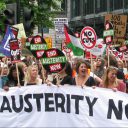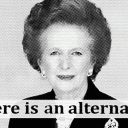Why the problem is economics, not economists

Image: Marco Verch, CC BY 2.0
In his excellent book ‘Economics Rules’, Dani Rodrik outlined what he saw as “the rights and wrongs of the dismal science”. One of his key refrains was that the problem was “economists, not economics”: that is, some economists mistook their models for the real world and applied them inappropriately, abusing a potentially useful set of tools. All too often the consequence was ideology masquerading as science, resulting in economic failures such as quantity-targeting monetarism in the 1980s; the 1990s Russian privatisation; and recently the 2008 financial crisis. According to Rodrik, good economics is about making sure you have picked the right model for the right job, basing your decision on sound theory and evidence. Any economist worth their salt should be pragmatic, not dogmatic.
Rodrik is not wrong that there are some economists who are prone to misusing their models, in some cases to an alarming degree. Neither is he wrong about what good economics should entail: intellectual flexibility and a grasp of a wide range of tools for understanding the economy. Despite this, I cannot agree with the general idea that the framework of economics is not the problem with the discipline, and that if this framework were only taught and practiced better many of the discipline’s problems would be overcome. In fact, I believe modern economics is characterised by the exact opposite problem: reliance on a single framework is hamstringing the research of capable, conscientious and (to a degree) critical economists. In other words, the problem is economics, not economists.
The bad economics Rodrik highlights should be resisted for sure, but it largely a vestige of the past and does not represent the current direction of the discipline. This is what causes researchers who better represent contemporary economics to become exasperated in response to the myriad of articles criticising the discipline as if it consists solely of free-market ideologues who cling to models of perfect markets. Two Manchester colleagues of mine, Rachel Griffiths and Diane Coyle, have been involved in this debate recently, and the hashtag #whateconomistsreallydo illustrates the frustration and perplexity many of these researchers share at criticisms of the discipline.
In a recent article for Prospect Magazine, Coyle counters a critique by Howard Reed by rattling off several contemporary examples where she believes economists are doing relevant, empirical work that has nothing to do with incubating financial crashes. Among these are papers looking at the benefits of railroads in 19th century India; the effect of modern technological change on jobs; and the effect of sugar taxes on obesity rates in the UK. These examples should be enough to convince people that a lot of modern economic research is going in the right direction.
But in my opinion the issue is not so much what economists do as how they do it. Critical thinking exists within the discipline but this criticism remains solely within the bounds of the mainstream. For a long time now ‘economics’ has been synonymous with a specific methodology, the use of which is considered interesting in itself regardless of whether it uncovers anything new.
Relevant, interesting – and unnecessary
At the Royal Economic Society (RES) conference this year, Botond Koszegi gave one of the keynote lectures, ‘A Pro-Market Case for Regulation’. Koszegi is a prominent researcher in prospect theory – which happens to be where my research interests lie – and along with his co-author Matthew Rabin is a likely candidate for a future Nobel Prize. The nub of his presentation was a model in which consumers, due to cognitive limitations, were unable to fully examine every single product they purchased. The result was that regulations guaranteeing a certain standard of safety, quality and the like could improve competition by giving people more time to shop around instead of having to devote so much time to investigate specific products. Thus, regulation would improve markets and competition.
I cannot fault Koszegi’s presentation, which was lucid and engaging. I also cannot fault his technical skills, which certainly surpass mine (a low bar, admittedly). I cannot fault the subject matter of his presentation, which was relevant and interesting. Nor can I fault the certain kind of creativity required to put these insights into an economic model. But then, that’s just it: to get an audience among economists, these insights had to be put into an economic model. Incorporating ideas into these frameworks is a necessary condition for their acceptance, something which stifles the production of knowledge.
Like them or not, the points highlighted by Koszegi were not especially novel. Koszegi himself argued that his framework rationalised existing policy by UK, EU and US regulators, rather than proposing a bold new direction. A quick search uncovered a 2011 UK government document on regulation – produced a good while before Koszegi’s research – which stated that “If consumers do not have sufficient information, or find it difficult to make informed decisions, firms face less competitive pressure”. Institutional economists such as Jamie Galbraith have claimed for a long time that markets function best when “the product is what it claims to be, and that it will function as it is supposed to do. This is what a strong system of regulation provides”. Clearly, we did not need a complicated theoretical model to make this point.
The dynamic of using standard economic methods to say something which is in some sense already known is quite common. One largely glowing article about last year’s RES conference published in the Independent came close to realising this when it said that “there is one [paper] that shows that married women are tidier than married men and do more housework after they get married. I think many people will be unsurprised by that, but it is good to have it established.” I can’t help but feel that this point was “established” long before economists turned their gaze toward it, and despair at the wasted intellectual capital from “establishing” it when there are far more pressing questions in the world.
As the old saying goes, “if you have a hammer, everything looks like a nail”. Economists have two main hammers: choice models and variants thereof form the basis of most theoretical models (I include behavioural economics in this, which still uses the utility maximising framework). Linear regression is economists’ preferred empirical technique (again, commonly used variants such as panel methods or instrumental variables are still fundamentally linear). Research incentives typically mean adhering to at least one of these two techniques, despite the plethora of other techniques available. The aforementioned ‘institutional’ school of economics might prefer a theoretical lens which looks at social and legal structures over individual choice, and an empirical method which focuses on qualitative details over statistical techniques. This is just one of the many alternative methods available to economists.
Mainstream economic papers often deal with what seem like exciting questions, but give ultimately disappointing answers because they follow the same old methods. I cannot count the number of times I’ve been lured into an economics presentation by a promising title only to be frustrated with the actual content. At Manchester last year there was a presentation with the scintillating title “Networks in Conflict: Theory and Evidence from the Great War of Africa”, which I enthusiastically attended. Many others clearly felt the same since the room was completely packed out, including undergraduates (who don’t usually go to these seminars).
But as the presentation began it became apparent that they were going to approach the issue using…dum dum dum… a rational choice model, followed by some linear regression! I felt that the war in the Congo was as good a candidate as any for something that was neither rational nor linear, but these underlying assumptions were not even discussed in the presentation or in the paper, which has since been published in a top journal. This could be forgiven if the paper contained revelations about the war in the Congo, but actually its key conclusion verged on trivial: the more your enemies fight, the more you have to fight; the more your friends fight, the less you have to fight. Besides being underwhelmed by this, I was surprised a paper on networks didn’t utilise Granovetter’s network analysis, arguably one of the most famous tools in sociology.
The question is not whether rational choice and linear regression can be useful; anyone who believes they cannot is talking nonsense, as some of Coyle’s examples illustrate. The question is whether they are always useful, which would also be nonsense, but is something you could be forgiven for thinking economists believe when following economic research. The rational choice model has had quite a few successes, including in matching kidney donors to one another, but it has at least as many failures, most of which are so well-worn at this point that it’s not worth going over them again. Linear regression is likely to be the right statistical model most of the time, but this still cannot be assumed a priori. Coyle rightly highlights two recent papers, one by Alwyn Young and one by John Ioannidis, which have cast serious doubts on widely used econometric practice and they are far from the first to do so.
Economists may respond that modelling and empirical estimation allows them to isolate and quantify formerly nebulous mechanisms to make the exact trade-offs of policies clear. However, I suspect that in many cases this is a spurious kind of precision, since estimated coefficients and modelling parameters are notoriously unstable. Out of sample predictions are not made habitually in economics, and when they are they have a mixed track record, to put it mildly. Furthermore, the choice of model will affect the conclusions, both by determining what to model and by modelling it in a certain way. As both Coyle and Reed agree, this makes value judgments implicit in economic models, but many economists are insufficiently aware of this point and tend to see standard models and regression as the default framework.
The other defence is a practical one: sure, these methods have their flaws, but they are the best way to convince policymakers, politicians and the public that a policy has a quasi-scientific justification. While this may be true given our current state of affairs, there is a circularity to it. Part of the reason that this kind of research is deemed necessary is because of the influence of economists in government and society over the past 80 or so years. By embracing a wider variety of approaches to knowledge, economists could use their considerable influence to alter the perceptions of those in power instead of reinforcing the reliance on a single framework.
It’s monolithic all the way down
The uncritical acceptance of one methodology begins with undergraduate economics education. Rethinking Economics conducted a curriculum review of 174 modules at 7 Russell Group universities – rightly or wrongly considered the ‘top’ universities in the UK – and we found that the uncritical acceptance of one type of economics begins with education. Under 10% of modules even mentioned anything other than mainstream or ‘neoclassical’ economics; in econometrics, over 90% of modules devoted more than two-thirds of their lectures to linear regression. Only 24% of exam questions required critical or independent thinking (i.e. were open-ended); this dropped to 8% if you only counted the compulsory macro and micro modules that form the core of economics education.
We have previously called this ‘indoctrination’, and while this may seem dramatic the dictionary definition of indoctrination is to “teach a person or set of people to accept a set of beliefs uncritically”, which we think adequately characterises the results of the review, as well as our own experience and many widely used economics textbooks. Given this education, it is no wonder that economists remain wedded to the fundamental precepts of choice models and linear regression no matter where they turn their attention. By putting the method first, the implicit assumption becomes that answering a question using this framework is prima facie interesting, and critical evaluation of these tools against others is made unthinkable.
This debate may seem too abstract to warrant such extended public discussion, but economics exerts more influence over government, the private sector and the media than any other social science – perhaps than any other discipline altogether. And the intellectual monopoly outlined above makes itself known through this influence, which limits our perceived political choices. Economic debates, including the one surrounding the recent Brexit vote, are frequently conducted in terms of aggregate GDP, which despite some criticism remains the standard measure of economic success both among economists and the public, even though it ignores (among other things) regional disparities in the UK and therefore does not speak to many peoples’ lived experience. This is perhaps one reason why the ubiquitous forecasts of a loss to GDP from Brexit failed to persuade the country.
One, more concrete example of the influence of economic ideas is the Green Book, a document produced by the UK Government that sets out the framework for the appraisal and evaluation of all policies, programmes and projects. It is remarkable how much this book reads like a first-year economics textbook in places: like a standard textbook, it focuses largely on economic efficiency while also acknowledging equity (distributional) considerations. It then spends much time discussing how to place economic values on the costs and benefits of policies to weigh them up. Other economic objectives such as security, stability, or economic freedom are not given much (if any) attention; other decision-making criteria (especially more democratic ones) are similarly absent.
Rethinking Economics believe that the curriculum needs to embrace a wider diversity of views, as well as focusing more on the real world and less on derivation of abstract models. But even in this debate the poverty of imagination resurfaces: when we call for the curriculum to teach us about issues such as the financial crisis, inequality and immigration, we are frequently met with the rebuttal that the relevant models are too complex for undergraduate education or would take too long to teach. Once again the assumption is that mainstream economic models are the starting point, when it is perfectly possible – desirable, even – to learn about issues such as the financial crisis without using any type of model. Models may help you to understand it at a higher level, but this should be built on top of a strong real-world foundation. Putting the real world first would mean that future business leaders, policymakers and academic economists would not enter the world believing that ‘economics’ is synonymous with one type of approach.
I believe that Rodrik’s bad economists are not a few unfortunate renegades; they are the reductio ad absurdum of the education and research practice outlined above. When economists are only taught one approach as if it is economics, then it’s unsurprising that some take it too far. In one sense what’s remarkable is how far contemporary economists have been willing and able to stretch the core framework to accommodate more relevant insights, working with such a limited set of tools. Despite this, areas of the discipline risk finding themselves in a bit of an intellectual dead end by putting their method first and using it to say things which are new and interesting only to economists.
Rethinking Economics and the wider student movement to reform economics believe that ‘critical pluralism’ is the antidote to this problem. If future economists are taught about relevant issues, using a wide range of models where necessary but not insisting upon them, less effort will be devoted to extending particular methods to trivial or long-answered questions. In policy and in the public arena, economics will give us a better conception of how the world works, and a broader array of political choices for making it a better place. Students will not only have a better understanding of why standard economic tools may fail; they will have a better understanding of when and why they are successful. Critical thinking will be embedded from the start of an economists’ training.
Several positive signs indicate that the discipline could go in this direction: the open-minded initiative Rebuilding Macroeconomics; a new focus on economics communication, including the fantastic session I attended at this years’ RES; the revamped CORE curriculum, which seems to be slowly becoming pluralist even if its adherent are reluctant to admit it; and initiatives from within government institutions such as the Bank of England and Government Economic Service, which are embracing pluralism. In fact, the newest version of the aforementioned Green Book, published this year, now includes an entire section on the limits of standard economic analysis when dealing with the environment and alternative approaches.
Here’s hoping that this kind of approach will be the norm for the economics of the future.





